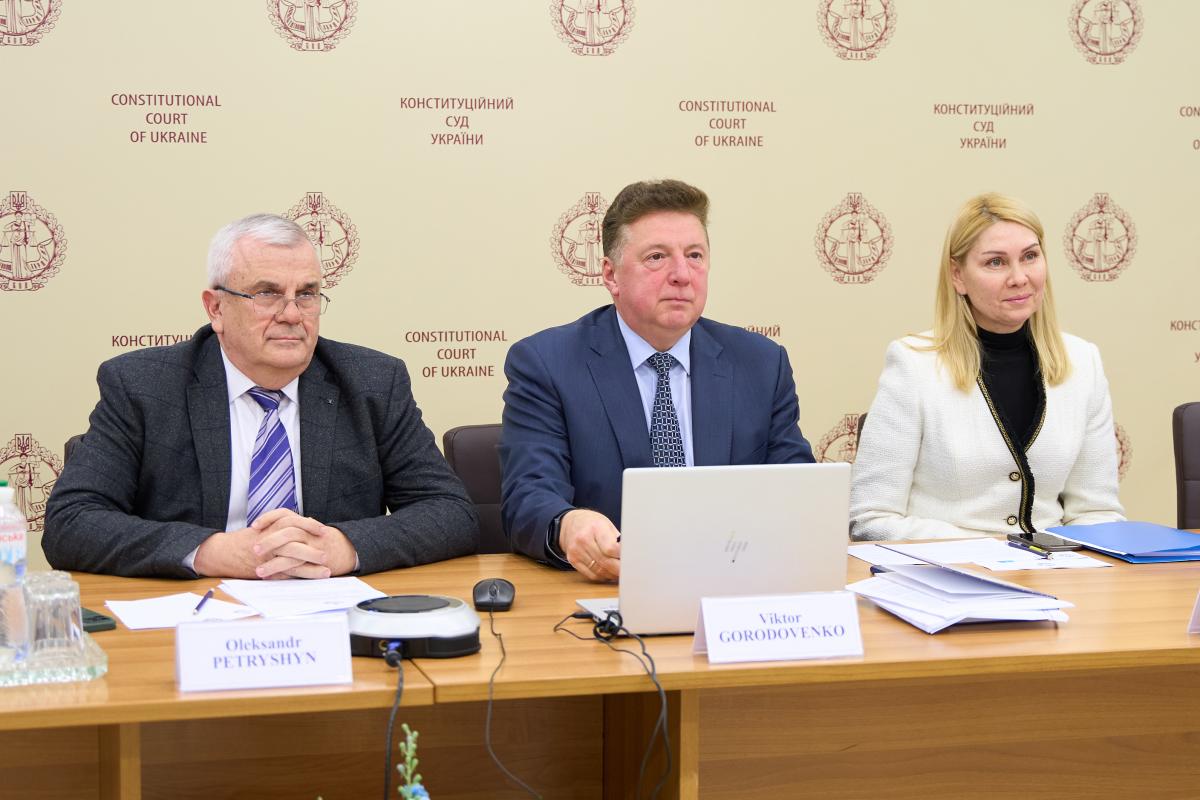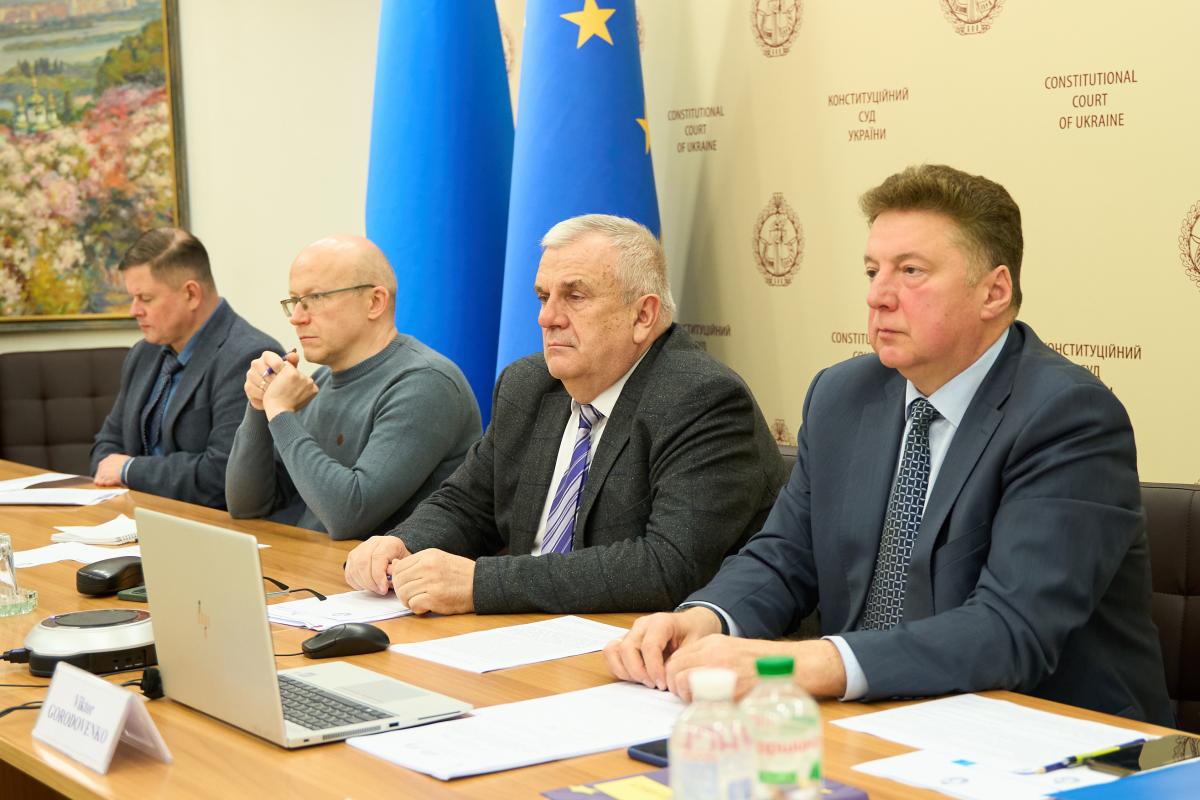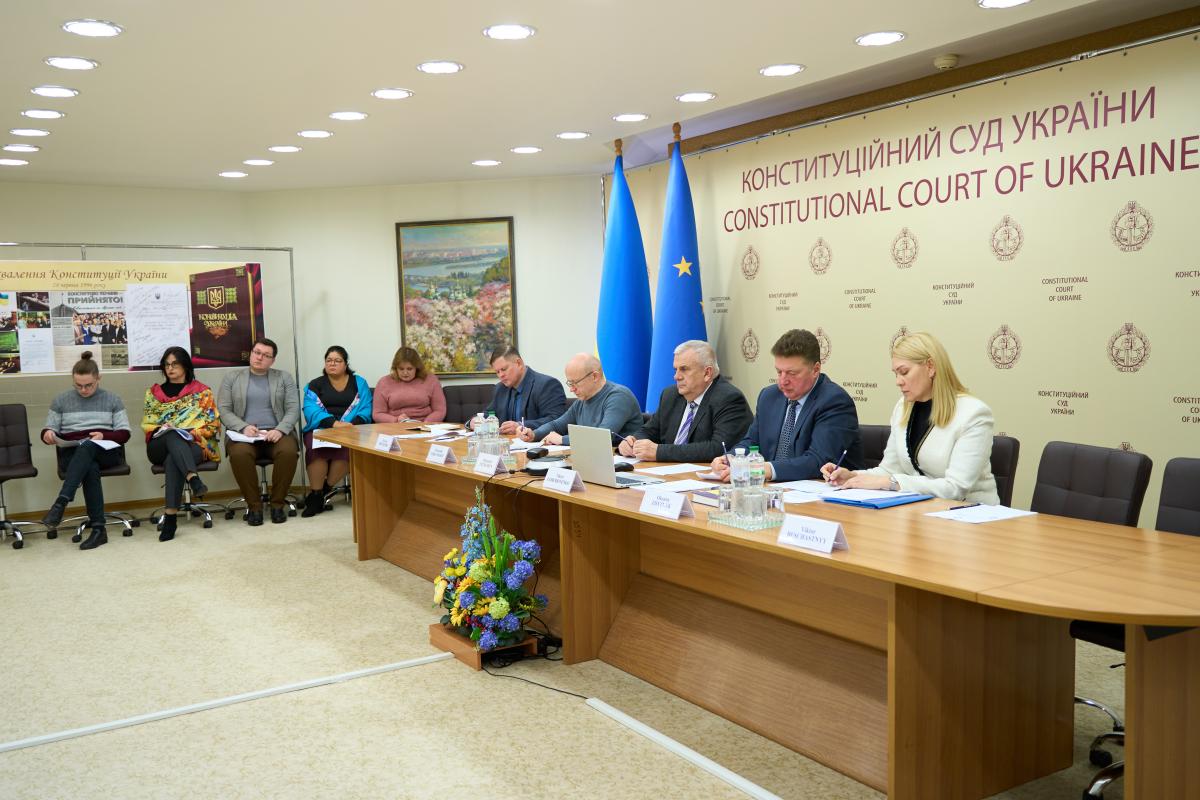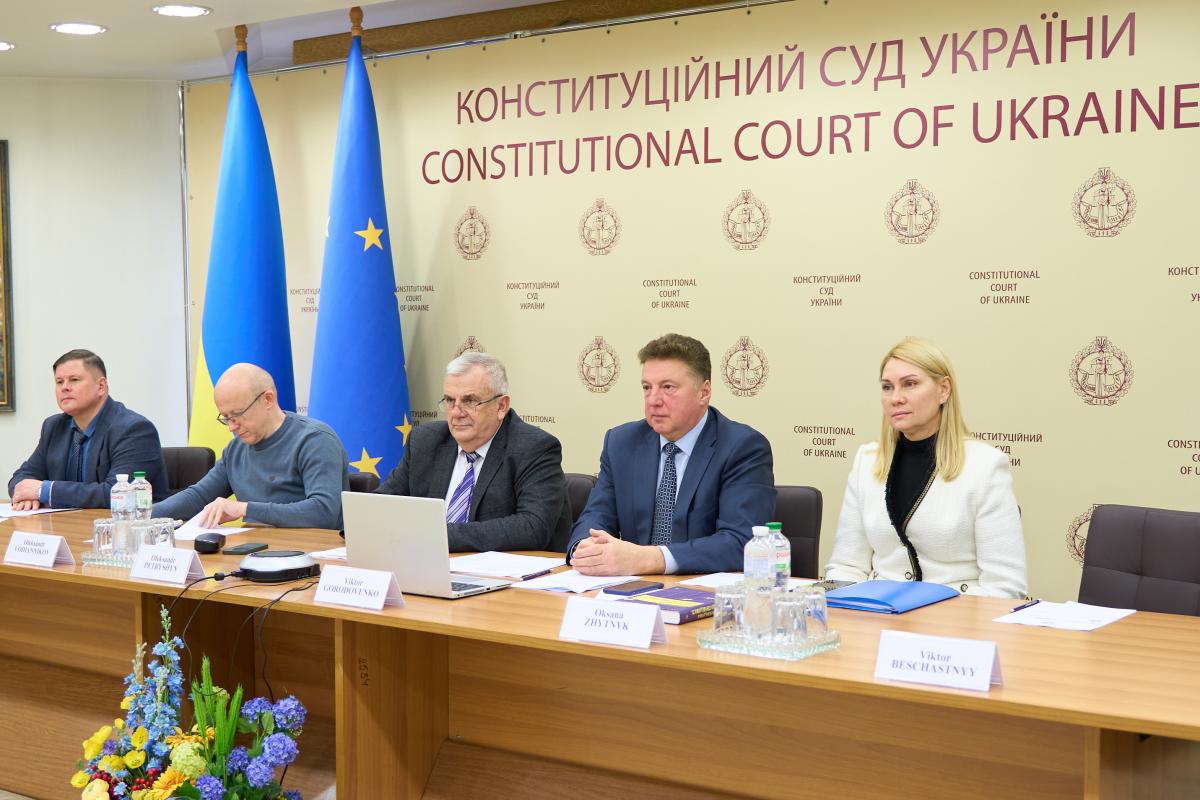On 30 October 2025, the Constitutional Court of Ukraine held a roundtable discussion on the topic “The Judgment of the European Court of Human Rights in the Case of M.S.L. LLC v. Ukraine: Key Aspects and Implications for Ukraine.”
Acting Chairman of the Constitutional Court of Ukraine, Oleksandr Petryshyn, delivered welcoming remarks. He emphasized the importance of cooperation with the European Court of Human Rights in strengthening constitutional guarantees of the rule of law and the right to a fair trial. He noted that, under martial law and ongoing armed aggression against Ukraine, ensuring the implementation of constitutional principles acquires particular significance. According to him, dialogue with the European Court of Human Rights is an important part of Ukraine’s integration into the common legal space of Europe, while the study of the Court’s case law supports the development of a European approach to interpreting the provisions of the Constitution of Ukraine.
Judge of the Constitutional Court of Ukraine Viktor Horodovenko moderated the discussion. He highlighted the need to strike a balance between Ukraine’s national security interests and the prevention of misuse of human rights protection mechanisms in the context of military aggression and hybrid warfare.
Judge of the Constitutional Court of Ukraine Oleksandr Vodiannykov noted that the ECtHR’s case-law on sanctions consistently underscores the need for effective ex post judicial review as a key safeguard ensuring the fairness of sanction decisions. He pointed out that Ukraine’s sanctions legislation has undergone significant changes after 2022 — in both procedural and institutional dimensions — and therefore the legal framework examined in the case “M.S.L. LLC v. Ukraine” differs substantially from the current system of sanctions regulation. This, he stressed, must be taken into account when further assessing and applying the ECtHR’s case law in the Ukrainian context.
Deputy Head of the Legal Department Mykola Hrytsenko briefed participants on the practice of applying ECtHR jurisprudence by the Constitutional Court of Ukraine. The discussion also involved Deputy Head of the Legal Department and Head of the Comparative Legal Analysis Division of the Secretariat of the Court, Coordinator of the Constitutional Court of Ukraine in the Network of Superior Courts at the European Court of Human Rights Oksana Zhytnyk, as well as staff of the Legal Department of the Secretariat of the Constitutional Court of Ukraine.
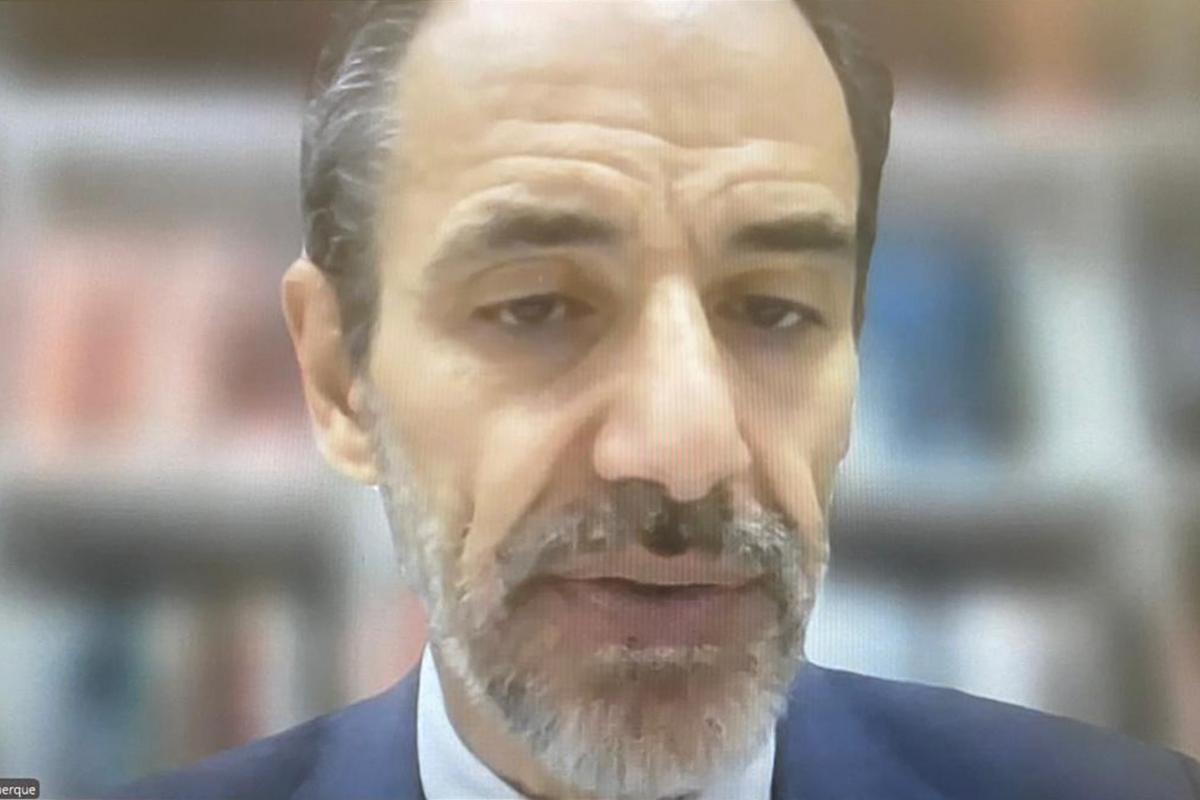 Judge of the European Court of Human Rights from Portugal (2011–2020), Doctor of Law, Professor at the Catholic University of Lisbon, Visiting Professor at Panthéon-Assas University (Paris II), Honorary Doctor of Law of Edge Hill University (Liverpool, UK), and Honorary Doctor of Yaroslav Mudryi National Law University Paulo Pinto de Albuquerque delivered the keynote presentation. He analyzed the key elements and implications of the judgment in “M.S.L. LLC v. Ukraine”, highlighting its relevance for improving constitutional mechanisms for the protection of human rights, particularly the right to effective enforcement of judicial decisions.
Judge of the European Court of Human Rights from Portugal (2011–2020), Doctor of Law, Professor at the Catholic University of Lisbon, Visiting Professor at Panthéon-Assas University (Paris II), Honorary Doctor of Law of Edge Hill University (Liverpool, UK), and Honorary Doctor of Yaroslav Mudryi National Law University Paulo Pinto de Albuquerque delivered the keynote presentation. He analyzed the key elements and implications of the judgment in “M.S.L. LLC v. Ukraine”, highlighting its relevance for improving constitutional mechanisms for the protection of human rights, particularly the right to effective enforcement of judicial decisions.
The speaker emphasized that the judgment has important consequences for the interpretation of constitutional guarantees of access to justice in Ukraine. According to him, the decision is significant for ensuring the protection of property rights, effective judicial remedies, and the rule of law in Ukraine.
“The Constitutional Court of Ukraine has consistently held that the enforcement of court decisions is an integral part of the right to judicial protection. In light of the ECtHR’s case law, a balance must be ensured between state security and the protection of human rights,” he noted.
The roundtable featured a substantive professional discussion on issues essential to the development of constitutional justice and the strengthening of the rule of law in Ukraine.
Participants focused on how the ECtHR’s judgment in “M.S.L. LLC v. Ukraine” may influence the interpretation of the constitutional right to judicial protection and the enforcement of court decisions. The discussion also addressed the need to reinforce constitutional guarantees of enforcement of court judgments as a key element of the rule of law.
Participants emphasized that the ECtHR’s legal positions serve as an important reference point for the Constitutional Court of Ukraine, which, when interpreting the Constitution, takes into account European standards of judicial protection, the principle of proportionality, and the binding nature of judicial decisions as fundamental components of a state based on the rule of law.

